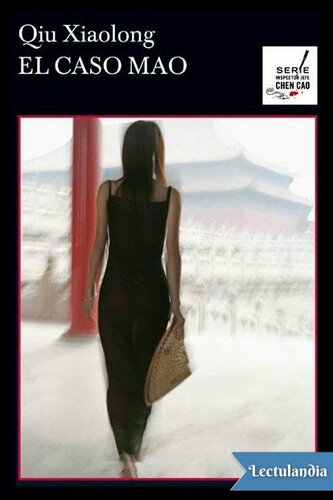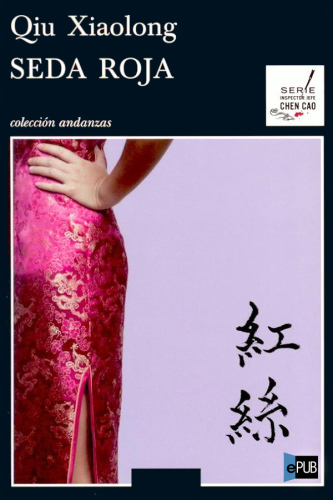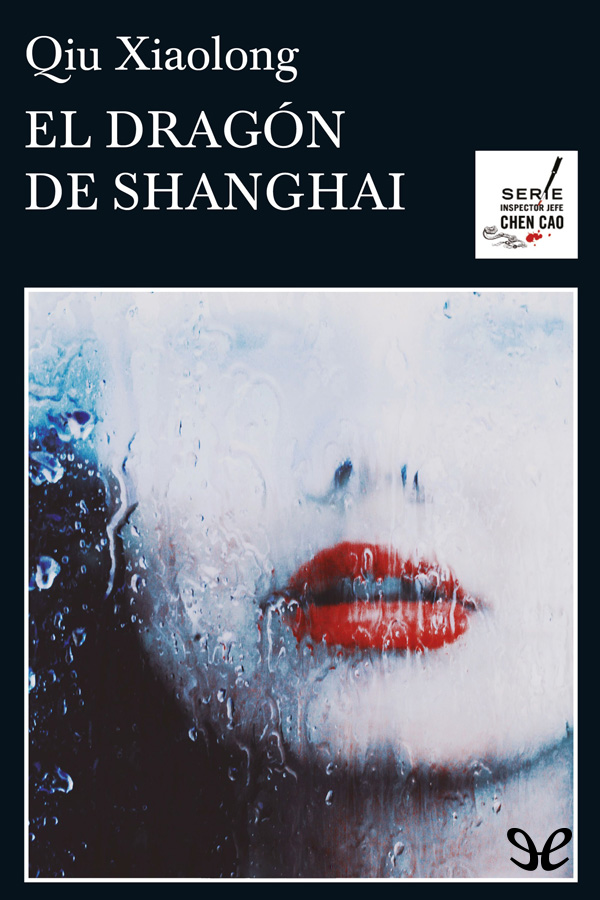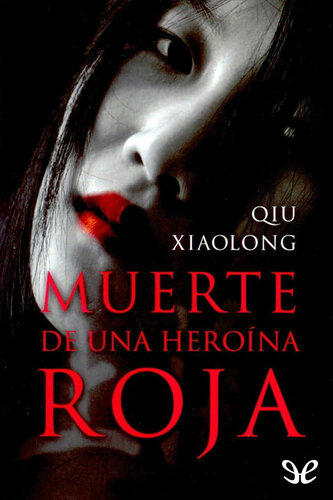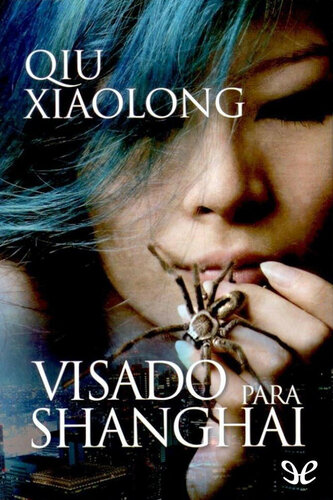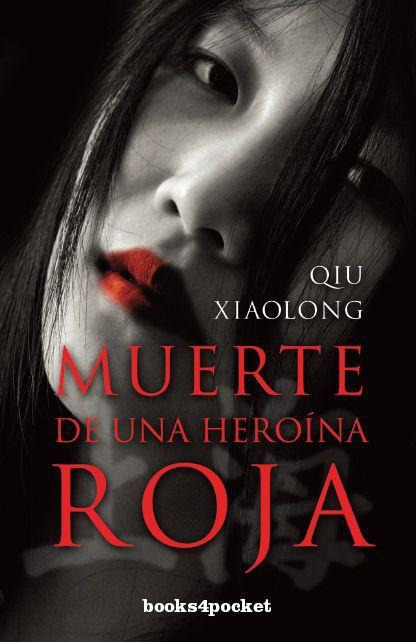oleebook.com
Ratti rossi de Xiaolong Qiu
de Xiaolong Qiu - Género: Italian
Sinopsis
In un centro karaoke del Fujian, nota copertura di una casa dì vizio e piacere, viene ritrovato il corpo senza vita di un poliziotto: stava indagando sui traffici di Xing Xing, magnate degli affari a capo di un gigantesco impero di contrabbando che coinvolge illustri personaggi a tutti i livelli governativi. Una lunga catena con numerose maglie in cui rimane impigliato anche l'ispettore Chen, incaricato di fare luce su un delicato caso di corruzione. È il flagello della nuova Cina, un paese sempre più simile a un immenso granaio infestato da grassi ratti rossi. Rosso è il colore della politica e della vanità dei sensi, e i funzionari di Partito che, tirannici e dissoluti, sfruttano la loro posizione per ottenere privilegi e favori speciali, sono come i ratti che dispongono a loro piacimento del granaio della società cinese, accumulando gigantesche ricchezze. Ai novelli mandarini è quasi impossibile opporsi, ma l'ispettore Chen, un sopravvissuto di successo nella giungla della politica, è deciso ad andare a fondo negli affari dei nuovi potenti. Di nuovo in coppia con Catherine Rohn, Chen dovrà seguire il maggiore indiziato negli Stati Uniti. Cercando di mantenersi in equilibrio tra il labirintico sistema di cui fa parte e il suo desiderio di giustizia, l'ispettore a capo della squadra casi speciali di Shanghai opta per una sorta di complicato esercizio di tai chi e sfida la forza delle Triadi e di certa politica per portare a galla una verità scomoda.
Descargar
Descargar Ratti rossi ePub GratisLibros Recomendados - Relacionados
Reseñas Varias sobre este libro
This was my least favorite in the series so far. It's not bad-- in fact, it gets off to a good start exploring corruption among the "high cadres" of The People's Republic, just the first novel in the series Death of a Red Heroine. But this case has two many murders, with victims and killers we barely get to know. We also get barely a glimpse of several recurring characters. Inspector Chen Cao's trip to the U.S. with a writers' delegation is not very convincing, despite the fact that the author has lived in this country for decades.
However, I still Inspector Chen and his assistant Yu, and the novel does advance their personal stories a bit. (My favorite scene was a joint interrogation run by Yu and his father, the retired cop called "Old Hunter.") So I will doubtless check out the next novel in the series in the hope they get a stronger plot and a more interesting supporting cast.8 s Georgiana 17922,030 138
L'ispettore Chen questa volta indaga sulla corruzione nella Cina post Rivoluzione Culturale, una rete fittissima che coinvolge anche diversi personaggi governativi e membri della polizia. L'ispettore Chen Cao viene chiamato a indagare infiltrandosi nella fitta rete, ma questo fa sì che venga uccisa la sua amica An dei tempi del gruppo di lettura, anche lei invischiata nei traffici loschi.
Sul più bello, però, Chen viene nominato capo delegazione degli scrittori cinesi al convegno letterario America-Cina che si deve tenere a Los Angeles. È un modo per sbarazzarsi di lui? O per tenerlo meglio sotto mira, visto che Xing Xing, il principale indagato, si trova negli Stati Uniti?
Negli Stati Uniti, Chen incontrerà di nuovo Catherine, l'agente della CIA con cui c'era stato una scintilla di sentimento nel secondo romanzo della serie. Ancora una volta, entrambi soffrono per la distanza culturale che li tiene necessariamente separati. E Chen ne approfitta per visitare Saint Louis, la città in cui il suo papà/alter ego Qiu Xiaolong vive da dopo i fatti di Piazza Tienammen.
«Continui a ripetere di non essere qualificato. Ma chi lo è? Abbi un po più dindulgenza con te stesso. Nella Cina di oggi, dove tutto è capovolto, conviene sfruttare al meglio le situazioni. Basta non agire a spese degli altri. Che altro si può fare?»
esploriamo-il-mondo-2024 sfida-delle-serie-2024 sfida-in-giallo-20243 s Orion380 29
I don't often read mysteries or what are called Police Procedurals, but I have become fond of Qui Xiaolong's series about Inspector Chen Cao of the Shanghai Police Department. The inspector is a poet who has become a cop, and he navigates the complex political and social milieu of modern Shanghai while solving difficult cases with a poet's mind. With a lot of emphasis on the local foods, I have fallen in love with this author's depiction of life in the city he grew up in as seen through the eyes of a poet detective.
In the fourth volume of the series, A Case of Two Cities, he is given a case dealing with corruption that may lead to the highest levels of Chinese government, but the culprit has fled to Los Angeles. Filled with food, poetry and politics, this is a detective story with a unique perspective that I find irresistible.3 s Shabbeer Hassan595 35
A rather disappointing book in the Inspector Chen series, with a weak story (as usual) but much weaker character motivations and horrid pastiche of Inspector Morse by Colin Dexter.
My Rating - 2/52018 whodunit2 s Orinoco Womble (tidy bag and all)2,083 217
Golly I hate to say this, but I was disappointed. Four novels into the Chen Cao chronicles, I guess it's normal that the author should lose a bit of headway. The case looked promising: an older, respected cop is found dead in a fancy brothel, and Internal Security gets a "confession" from the terrified young prostitute far too quickly. What's up? Well, you won't find out here. This intriguing case gets lost as Chen is shuffled off to the US to head a delegation of Chinese writers who are to travel the States for a couple of weeks exchanging views with US university professors...but the death of their interpreter strands them in St Louis, of all places, for days on end.
And that's about it. The action, such as it is, is slow. The threads are tangled and lead pretty much nowhere, and there isn't any resolution as such; they just eventually go home, after a lot of "telling instead of showing" that takes place in Chen's mind as he thinks about the case. I don't know if any threads will be picked up in the next volume, but I felt impatient and annoyed, waiting for something--anything--to be resolved.
I can't shelve this as I normally would, under "China is Not Japan," as the majority of the action doesn't take place there, and the Chinese culture as such is not integral to the story. It's not even a police procedural, as Chen is far from having any jurisdiction. Catherine reappears but as an interpreter, not a cop--and spends most of her time giving him significant looks and rubbing her (yet again twisted) ankle.I've heard the meme that Asian men have a thing for feet. Maybe there's some truth in it, given the amount of time given to describing women's feet, ankles and toes in these books. Chen's poetic flights are in English this time, obviously dealing with being a fish out of water in another culture, but even the usual classic quotes don't really fit. How could they? This is a scrap bag, not a mystery novel. Eh.
Not only that, but either the book was extremely poorly proofread, or they decided to leave it as-was; there are many misused prepositions and strange changes in idiomatic expressions, such as "behind the scene" instead of "behind the scenes."
I usually read one of these books straight through without picking up anything else until I'm done; the fact that it took me two weeks and I read a couple of other books in there, and actually had to go back and start over, tells you something.
Tis true, tis pity--and pity tis, tis true.not-up-to-standard rather-heavy-going2 s Beth451 3
I'm really loving this series. In the fourth book, Chief Inspector Chen of Shanghai circa the early 1990s is put in charge of investigating corruption among top party officials, especially a wealthy man who has escaped to LA. A woman Chen interviews is murdered after he speaks with her. Then he is summarily sent to the U.S. and asked to lead a group of writers on a tour. Why do they want him out of the way? Meanwhile his ragtag team of loyal helpers and others, including a businessman with questionable Triad connections, continues to investigate in China. While in the U.S., a translator, who may have been mistaken for Chen, is also found killed, supposedly from a mugging. And Chen is reunited with a beautiful U.S. marshal who he worked with on a previous case. Eventually, Chen and his team find solutions while stealthily avoiding party politics. I love all the details of everyday life in China, such as hot water shops and the fascinating food described. Chen, who is also a poet, intersperses verse and Chinese proverbs as he goes about his work. 2 s Sae-chan670 13
What an ending! Maybe my copies lacks something 100 pages at the end.
The way the writer quoted Chinese poetry in every other page was tiresome, but in the end some of the poems were the only redeeming value of this book.
What I really can't stand was the way the writer's defense against his grammatical errors. Unacceptable.romance-mystery-light-read2 s Alice807 2,962 Shelved as 'dnf'
Read until around 100 pages, and just wasn't feeling it. Didn't feel any connection to the main character, though that's probably because it's not the first one in the series with the same main character.2 s Sharon937 1 follower
This book is more a study of the difficulties faced by ethical Chinese law enforcement officials in their efforts to route systematic corruption from the communist Chinese government. than it is a mystery. The book conveys a lot of information on the communist system and contains many literary references and poems, both Chinese and English. Indeed Inspector Chen Cao is a poet and, in the midst of investigating a corruption case, is suddenly appointed to head a literary delegation visiting the US. Why this sudden assignment occurres is part of the mystery and the difficulties that he faces in his mission.1 Kathryn827 35
Inspector Chen, Detective Yu and Yu's irrepressible wife, Peiqin, are beginning to feel old friends and not just because I was "social distancing" myself from family and flesh-and-blood friends when I read A Case of Two Cities. Shanghai, in the throes of rapid Westernization, and a rapidly changing political system make an interesting setting, and this time author Qiu brings Chen to the United States as the head of a delegation of Chinese writers, some interesting personalities who have some pithy comments to offer on U.S. culture and capitalism. Yu and Peiqin work hard to stay on top of Chen's anti-corruption case in his absence. Very entertaining read during a distracting time.mysteries-thrillers1 Claudia2,839 37
This is the one I less d so far. It's not bad, don't get me wrong, but it was a bit... directionless? We have an interesting case with the murder of a cop in a brothel that opens a gigantic can of worms, but it goes nowhere because Chen is sent to the USA with a delegation of Chinese writers. Guess what? They all got stuck in St Louis because their interpreter is killed. And that is it. That's all that we have when it comes to the cases.
There is, nevertheless, a lot about Chinese politics, the corruption inherent in countries going through quick economic and social changes and the usual poetry, which I love.
Not the best in the series, but still good.
audiobook mystery series1 Andrew1,215 24
This is the fourth in a police series which features a very enjoyable character Inspector Chen of the Chinese police. The main thing I enjoy about the stories is the immersion in the culture as the author peppers his tale with various wonderfully described food , confuscist sayings and Chinese poetry, economic conditions and party hierarchy , and Chinese politics. I love the complexities of policing in a communist state where every crime has political implications so Chen is constantly looking over his shoulder.
Here a criminal has built up an empire on the back of property deals involving high up political figures before seeking asylum in the USA. The death of a police officer in unusual circumstances leads Chen to have an open letter allowing him to investigate the corruption and leads him to visit USA as head of literary delegation.
I will definitely be reading book 5 soon.
1 Webb175 3
This is my favorite in the Inspector Chen series so far. My favorite scene is Inspector Chen visiting the Buddhist temple.
I the emphasis on writing as practice and as a political tool. The mystery/investigation aspects somewhat fall to the background, which is completely fine with me while the characters remain vivid and personal in the foreground.1 Susan1,916 4
The mystery was a bit difficult to follow but I enjoyed the development of the characters, especially Yu and his wife.2023-reads kindle-2023 off-the-shelf-20231 Sarah813 10
I really enjoy this series and the main character: Inspector Chen Cao. He is a police investigator, but also a poet and translator of English books into Chinese. This installment of the series sees Chen travel to the United States as part of a Chinese Writer's Delegation. I found it interesting to learn that the Chinese are familiar with Western writers and Canon, while most Americans know so little about Chinese literature.
The author does a great job in giving a sense of atmosphere and describing all the Chinese meals the characters have. Way beyond the Chinese restaurants I've been to. I also love the group of recurring characters in the series: Chen's partner Yu, Yu's wife Peiqin & Yu's father Old Hunter. I enjoyed this book so much that I hope it doesn't take me 5 years to pick up the next one in the series.1 Sheila552 50
No. 4 in the series but my first. Inspector Chen is an honourable Chinese cop amidst the flotsam of Party political deception and corruption in the new Shanghai. I suppose it us what is called 'cosy crime' pleasant enough easy read, but Scandinoir is more my taste1 Sara494
This one's a page-turner, with the added bonus of a marvelous parody of T. S. Eliot's "Love Song of J. Alfred Prufrock." The two cities in question are Shanghai and St. Louis, although there's a stop in L.A. along the way. Chen is investigating corruption in China and naturally those in high places are ready to protect themselves and their cronies. When Chen's investigation stirs them up, he is ordered to take two weeks off and lead a delegation of poets to a conference in the USA, where the subject of his investigation is seeking political asylum. His American friend Catherine turns up in St. Louis to interpret for the group and her help is key to the success of his investigation.
If you know the series, you will recognize many familiar characters, but I particularly enjoyed the incidental comedy of the Chinese poets and their clashing personalities and opinions, especially their behavior when they visit a riverboat casino.
As usual, there is wonderful poetry along the way - St. Louis itself inspires some lyrical passages, which may seem odd unless you've been there. Qiu is the kind of writer who, Chen, finds poetry wherever he goes...1 Mel83
Enjoyed this Inspector Chen book, though not quite as much as the previous three in the series...perhaps I should have taken more of a break between them, but I felt compelled to get the next one and then to finish it. I do highly recommend the series though; very enjoyable. Also, as a side note, great little descriptions of meals throughout, making me crave Chinese food, especially dumplings...readin20071 Warren Fretwell283 1 follower
This book is another in the Inspector Chen series that is written about a Chinese police inspector in modern, mainland China. Chen is not only a police detective, but a scholar whose specialty is T.S. Eliot and poetry. Consequently, we get healthy dose of poems throughout the book. I found many of these poems to be rather obscure and, for me at least, they do not always add very much to the immediate story. Poetry from old China often requires considerable reflection and introduction of these works interrupts the story.
Nevertheless, the Inspector Chen series gives us a perspective on China from an author who grew up in Shanghai. Nice to have an insider's viewpoint.
Chen is assigned to a special unit under the authority of the Party to investigate corruption in high places and, as his investigation starts to gain some momentum, he is suddenly assigned as head of a Chinese literary delegation that is visiting the United States for a couple of weeks. He does not believe he is qualified to take the lead and wonders if his new assignment has anything to do with getting him out of the mainland so his investigation will be delayed.
A couple of murders later has Chen wondering where this is headed and if he is, in fact, a target.
Chen works with his trusted aid Yu Guengming and his family who are back in China trying to put clues together while the Inspector is aided in the states by an old flame who is assigned to keep an eye on the Chinese delegation by American authorities. There is a relationship brewing between these two, but conflicts as well that seem to have predestined just how far things can go.
Some critics have suggested Xiaolong reveals just how corrupt nations China have become. But, that misses the point. After all, one could argue the USA is a prime example of how money corrupts politics. Just look at our campaign finance system to see how monied-interest have influenced American laws and regulations. Corruption is inherent in most political systems to one degree or another. So, Xiaolong is not demonstrating an exception when he writes about special interests within the PRC.
Chen must balance his role as a police investigator looking for justice versus his position within the Communist Party, towing the line for the Party hierarchy. It's not easy, but Xiaolong's rendering creates an interesting tale of political intrigue and murder that is a worthy addition to the series.china crime-mystery Graeme Roberts517 36
I loved Death of a Red Heroine the first novel of Qiu Xiaolong. A Case of Two Cities is the fourth in the series. The nightmare of endemic corruption and greed in modern Chinaand particularly the Chinese Communist Partythat he portrays feels entirely authentic, though deeply sad and depressing. Inspector Chen Cao, a sensitive policeman/poet from Shanghai in the Adam Dalgliesh mold (see the P. D. James series that debuted in 1962 with Cover Her Face), now seems weak and irresolute, even in his failure to pursue enticing sexual opportunities, and the story is simply disappointing. I also became bored with Chen's frequent quotations of poetry from the Tang and Song dynasties, works that I have always loved in moderation. Chen's "own poetry" is traditional, lackluster, and inauthentic for one who supposedly loves Eliot.
the boy who fell in the cesspit, Qiu was just going through the motions. Jennifer CollinsAuthor 1 book31
Xiaolong's Inspector Chen series offers a fantastic blend of character, atmosphere, and mystery, with all of the books being anchored in poetry and attention to the details of Chinese culture in Shanghai, especially when it comes to food and custom. This is the fourth book in the series, and was somewhat of a departure from the earlier books in the series. Where earlier books felt more centrally focused on a mystery, this one ranged across multiple cases/concerns (multiple continents, even), and seemed just as focused on attending to Chen's character and the literary aspect of the series. That took some getting used to, I admit--it wasn't exactly what I'd expected upon picking up the book--but I ended up enjoying it. And, as always, Xiaolong's inclusions of poetry made the book that much richer, even if it sometimes stretched believability that they'd come so easily to the characters' minds.
I would say that, so far, this book is an outlier in the series, and that readers would definitely want to start with the first three books. The other caveat is that it feels this book ends on less firm footing than normal, and leads directly into the next book--to the extent that it almost feels this is a two-parter more than a stand-alone in some ways. I'll be making a point of picking up the next book sooner than later because of it, but regardless, I certainly recommend the series.fiction mystery part-of-a-series Andrea159 34
Now I need to read A Tale of Two Cities, but need to finish this series first (yeah, also Dream of the Red Chamber and Monkey: The Journey to the West, not only because they are mentioned in the series at least 15 times, but also because some of my favorite custom campaigns in AOE II DE are based on them - if you have no idea what I'm talking about, you can ask).
In this book, I felt the author relaxed and started exploring alternative case-building styles. Nice, we are getting out of the comfort zone. The story was well rounded, the cultural background is still very important in the story, the characters are growing.
There's still the emphasis on poetry and food, but it's not overpowering any more. It's mostly a leitmotif specific to this series. Sort of an inside joke, but not funny. Marco Camillieri79 1 follower
Volendo fare un bilancio, promuovo certamente Xiaolong: il suo libro è ben costruito, ben scritto, con personaggi accuratamente tratteggiati e una trama che pian piano diventa sempre più avvincente. I pro superano decisamente i contro, ma voglio elencare gli uni e gli altri. Pro: è stato bello fare un viaggio in un mondo (per noi) esotico fatto di sapere zen, cavoli e anguille fritti, ritualità e sapori a noi sconosciuti. Non che fosse il primo, ma ogni volta c'è qualcosa di nuovo da imparare. È stato interessante leggere i retroscena - molti già noti - che si nascondono dietro una società, quella cinese, che anela a dei valori di comunismo ma è comunque fatta di persone, e pertanto di corruzione e imbestialimento.
Contro: belle le poesie della ottordicesima e noverdicesima dinastia Tang ma dopo un po' vengono a noia. I continui rimandi ad aforismi di Confucio, a poesie di Chiun Coso e Lao Cosa, finiscono per annoiare, tant'è che gli ultimi li ho saltati tutti. Probabilmente, anzi sicuramente, per un limite personale; magari rappresentano per altri un punto di forza del racconto.
Il succo è che cercavo un thriller e ho trovato un buon prodotto che oltre a coinvolgermi mi ha anche insegnato qualcosa. Dunque, promosso Qiu Xiaolong. Martina13 1 follower
Well, I was hoping for China insights when I chose to read this book, so I cant really feel disappointed... but it was definitely far from being a mystery novel.
Even without knowing a single thing about the author, it is immediately clear to the reader that he is probably a Chinese living abroad (US I would easily guess) and that he somehow misses his country. I felt he was trying to make Chen impersonating a sort of Chinese version of the American dream, with him speaking his fair English, being recognized as a fine translator and having this perfect depiction of a good American girl falling for him.
The constant recalls of Chinese poetry, Partys comradeship spirit and political issues are surely interesting, but a bit hard to follow if you were expecting to read a mystery novel. Still, i am aware of the strong meaning of sayings in Chinese culture, and it was nice to see how they are used in everyday life (and what frequency!).
I am not sure whether to suggest to read the book.. the plot doesnt really have a point and it seems more a necessary contour, rather than a real story! Martin Roth67 1 follower
Review from Asia Thrills - https://asiathrills.com/a-case-of-two...
A supposedly honest cop is found dead in the arms of a prostitute. Enter Inspector Chen, in the fourth of the series featuring his gumshoe exploits.
A major state-sponsored anti-corruption drive has begun, and the poetry-quoting Chen is to be one of the leaders. In particular, he is charged with investigating the high-profile case of a corrupt local government official who has fled to the United States.
Chen travels to the US, ostensibly as head of a delegation of Chinese writers, but danger follows.
An intriguing portrait emerges of the new China, replete with brothels, bars, the newly rich and a black economy where back-door connections can make all the difference between a gated community or the gutter.
It is this mix the suspense of a able, traditional cop on the beat, but set in modern, fast-changing China that makes the Inspector Chen books such good value, and A Case of Two Cities is as good as the series gets. Brad McKenna1,218 1 follower
These books don't have very much in the way of a climax but they're so well-written that it doesn't matter.
This volume has Chen in the US. It's interesting seeing Chinese culture and how it informs the literary delegation's behavior in another country. The verses of poetry that are quoted throughout still bring me back to college. In a good way. The pronunciation of names, though, give me trouble! Especially ones that begin with X or Q!
I really love this series.
Now for some spoiler-y stuff to help me remember:
I guessed pretty quickly that the interpreter's death was a case of mistaken identity and was supposed to be Chen.
Bao and his dissatisfaction at not being delegation head was the unwitting inside source.
I how Old Hunter got to help Yu solve the case.
The divination that Chen performed in the Buddhist Temple to get Xing unwittingly reveal some info was a bit of a stretch for me. It was interesting but didn't seem to fit his character.
men mystery poc Roberta425 1 follower
Inspector Chen Cao of the Shanghai Police Bureau is summoned by an official of the party to take the lead in a corruption investigationone where the principle figure and his family have long since fled to the United States and beyond the reach of the Chinese government. But he left behind the organization and his partners-in-crime, and Inspector Chen is charged to uncover those responsible and act as necessary to end the corruption ring. In a twisting case that takes him from Shanghai, all the way to the U.S., reuniting him with his previous cohort from the U.S. Marshall's serviceInspector Catherine Rhon.
This is the fourth in the series. I the books that occur for a time in the US. It's always interesting to get the authors perspective on the difference in culture and the ways the legal system works. As Chen Can matures in his job because more confident and more apt to question, his character becomes more nuanced and interesting. Restaino16
In the vast literature of detective stories, this book is not an unforgettable one, and rather conventional and predictable.
It has some distinguishing features though, which makes it a pleasant reading. For those who lived in St. Louis, MO, one is the setting of the second half of the story in downtown St. Louis, with Saarinen's arch, the riverfront and the desolated streets outside the working hours, when they are not populated by the employees of nearby public offices.
The second one, more striking, is that the main character is a literate inspector with a passion for Chinese classical poetry, and this expedient gives the author the possibility to transform the book in a brief anthology of beautiful Chinese epigrams. Flapidouille573 1 follower
I found the first two thirds very good... but the last part most disappointing. The problem lies in the story, plot, or rather lack of; very naive I thought, childish even. There is no detective story in this book to speak of. Also all these poetry quotes seem to accumulate without real reason ... some of the poems are true gems whereas others are quite superficial and insipid.
The problems the author seems to have with the English language do not help -- although this could in fact be quite endearing in a richer context.
One very good point of this volume is the cultural clash between China and the USA: two different ways of thinking most effectively rendered.
So after all I wrote above I do recommend this book... and intend to read the next one ! Susan Kinnevy622 1 follower
Autor del comentario:
=================================
